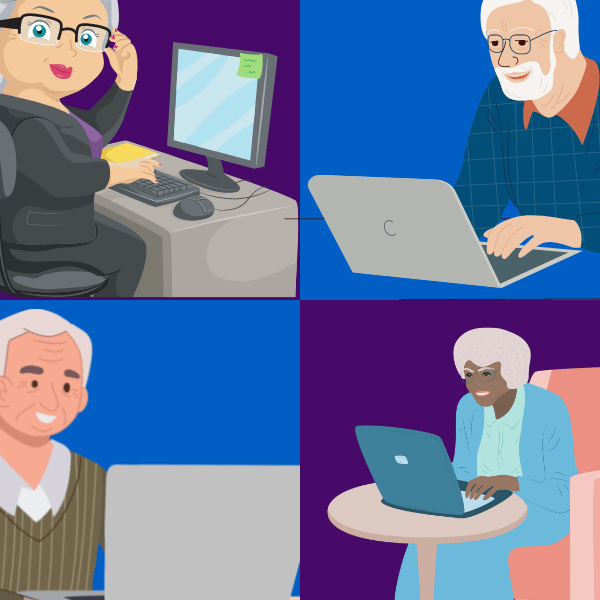Loneliness and social isolation are major concerns for many older adults. These individuals are more likely to experience social isolation due to reasons such as losing social ties, relocating to care communities and facing limitations from their physical and mental health. When older adults are isolated and lonely, it can lead to various issues, such as poor health and lower self-esteem. Additionally, studies have indicated that social isolation can increase the risk of dementia for community-dwelling older adults.

In recent years, the COVID-19 pandemic has led to an even greater increase in loneliness and social isolation among older adults. According to a national poll from June 2020, 56% of older adults reported feeling isolated from others compared to just 27% in 2018. Due to the pandemic, seeing friends and family in person became unsafe because of the spread of the virus. Many seniors also relied on senior centers and community organizations before the pandemic. Without these connections, older adults have become more lonely and isolated.
While loneliness and social isolation are serious concerns, there are ways to help with these issues. One of these ways is the use of technology. One study found that the use of social technology such as email, Facebook and online video services can have a positive impact on seniors. This study, which included nearly 600 older adults, found that the use of these social technologies was linked to lower levels of loneliness, fewer chronic illnesses and depressive symptoms and better self-rated health.
In another study, participants aged 65 and older were interviewed annually to assess their health, cognitive function and overall well-being. This data was used for another study, which found that over 70% of the people who were not socially isolated at their first appointment had a working computer and/or cell phone, and used email or text messaging regularly. Over a four-year research period, it was found that older adults who had access to this technology showed a 31% lower risk for social isolation compared to the others. Using communications technology, such as email and telephone, lowered risk for social isolation.
Technology use can be beneficial for older adults communicating across long distances, such as to stay in touch with friends and family who do not live nearby. In addition, technology has allowed seniors to connect with others during the COVID-19 pandemic. With technology, older adults have been able to communicate with others safely while having to be isolated.
At Conversations to Remember, seniors use technology to video chat with student volunteers on a weekly basis. Seniors can benefit from participating in these calls with students. Each week, they are able to speak with students about a variety of topics. By using technology, the seniors are able to connect with others and communicate on a regular basis. In line with Conversations to Remember’s mission, these weekly virtual meetings can lead to less loneliness and social isolation for seniors.
References:
Alibhai, K. (2017). Social Isolation and Technology: How Technology Can Be Used to Reduce Social Isolation Among Older Adults in British Columbia. Social Connectedness Fellowship Program.
The link between loneliness and technology. (2019). American Psychological Association, 50(5).
New Studies Suggest Social Isolation Is a Risk Factor for Dementia in Older Adults, Point to Ways to Reduce Risk. Johns Hopkins Medicine Newsroom. (2023, January 12). Retrieved from https://www.hopkinsmedicine.org/news/newsroom/news-releases/new-studies-suggest-social-isolation-is-a-risk-factor-for-dementia-in-older-adults-point-to-ways-to-reduce-risk
Piette, J. (2020, September). Loneliness Among Older Adults Before and During the COVID-19 Pandemic. National Poll on Healthy Aging. Retrieved from https://www.healthyagingpoll.org/reports-more/report/loneliness-among-older-adults-and-during-covid-19-pandemic
Real World Health Care Editorial Staff. (2021, March 31). COVID-Driven Isolation Can Be Dangerous for Older Adults. The National Council on Aging. Retrieved from https://www.ncoa.org/article/covid-driven-isolation-can-be-dangerous-for-older-adults
